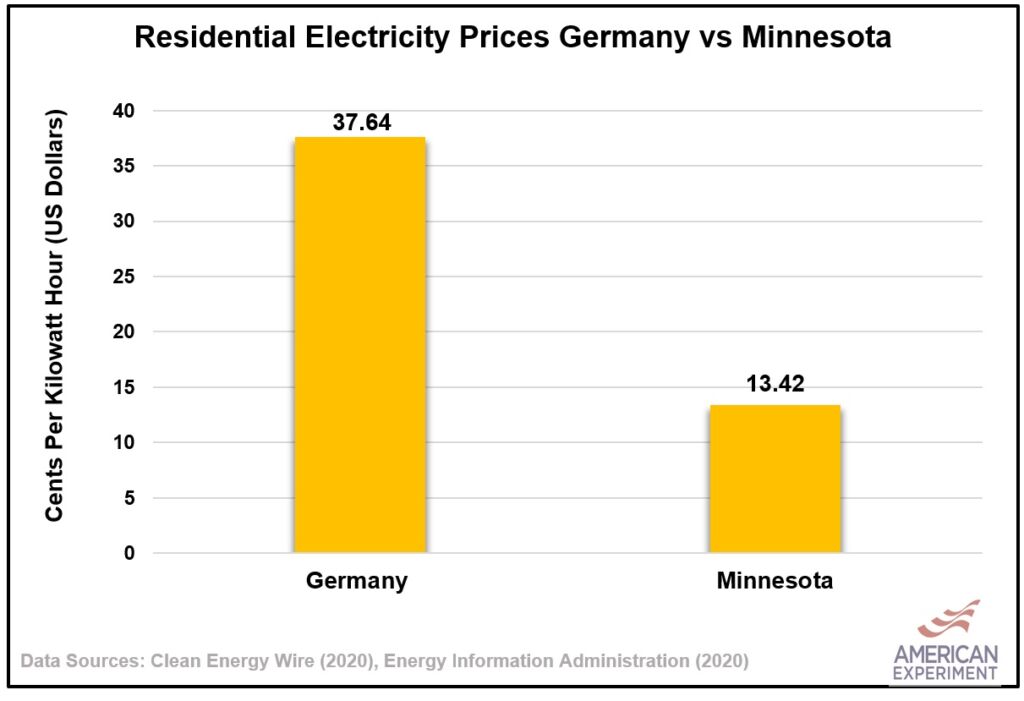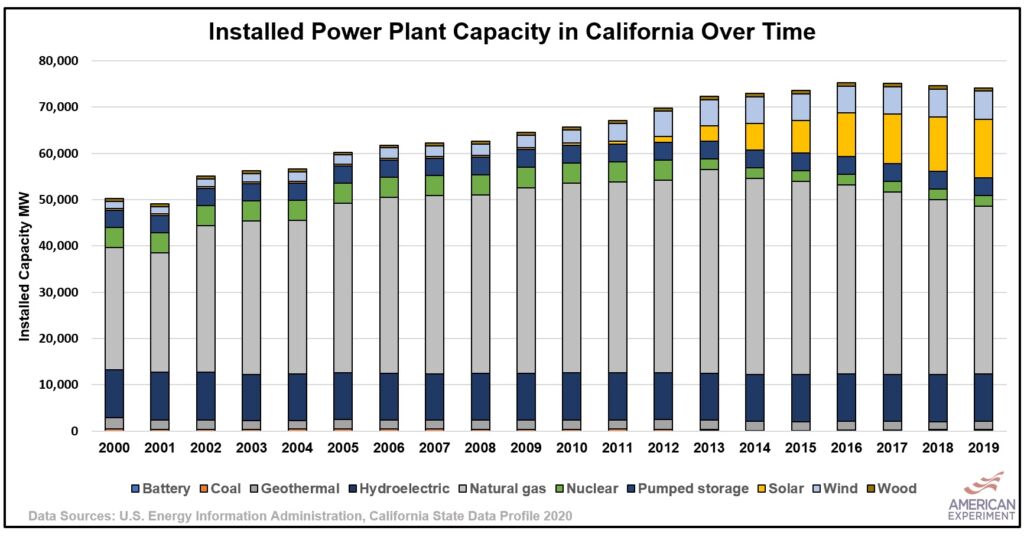Germany’s wind and solar push driving up prices, harming reliability
Minnesota politicians, along with wind and solar special interest groups, often applaud Germany’s decision to close its nuclear and coal plants in order to build more wind and solar, but an audit by the German government seen by Reuters indicates the country’s energy policy is causing electricity prices to skyrocket, and it is putting reliability at risk.
The Reuters report begins:
FRANKFURT, March 30 (Reuters) – Germany’s energy transition has proved too costly and underestimated the risks to supply, a federal audit office report seen by Reuters has found.
Reforms are needed to state taxes and fees to fix a system that has left Germany with Europe’s highest retail electricity prices and at risk of grid blackouts, the as-yet-unpublished report said.
This report, when it is published, will be a bombshell because it will shed more light on the enormous costs and consequences of Germany’s misguided energy policies. Reuters continues:
Economy Minister Peter Altmaier likes to underscore Germany’s role in moving to green energy under his stewardship.
“There is a risk of losing Germany’s competitiveness and acceptance of the energy transition,” the report said.
Germany’s energy-intensive industries, including the likes of steelmaker Thyssenkrupp and chemicals firm BASF, enjoy partial exemptions from some of the costs of supporting the rollout of wind and solar power.
However, more than 50 percent of householders’ power bills are made up of taxes and fees, most of which support the transition away from coal, gas, and nuclear power.
This makes them 43 percent more expensive than the average of those across the 27-nation European Union.
Germans pay 37.64 cents per kilowatt-hour for their electricity, which is 2.8 times more than the prices paid by Minnesota families, as you can see in the graph below (edited, see below). Taxes, fees, and subsidies that prop up the wind and solar industries account for approximately half of the cost of electricity for German households.

Germany’s Green Leap Forward is also undermining the reliability of the system, reports Reauters:
The audit office also warned of a looming energy supply shortfall as utilities prepare to turn off the last of their nuclear reactors and the government spurs a pullout from coal.
There is likely to be a shortfall of 4.5 gigawatts (GW), equivalent to 10 large coal-to-power generation plants, on the power grid between 2022 and 2025, the audit office report said.
The report said the economy ministry’s approach has been “too optimistic and (its assumptions) partly implausible” and had tip-toed around addressing the worst-case scenarios, a view echoed by grid operators.
The government strategy calls for improving cross-border flows to spread localized and temporary supply risks, but its neighbors are doing the same.
Network investment is estimated to reach 85 billion euros ($99.77 billion) by 2030 refinanced via grid fees paid by the public.
Tip-toeing around addressing a worst-case scenario is exactly what Texas and California have been doing for years, and it is the primary reason why these states have suffered rolling blackouts.
Germany’s plan to increase cross-border flows of electricity is the California model of planning to fail. The Golden State shut down reliable coal, natural gas, and nuclear plants and has become increasingly reliant upon wind, solar, and imports from other states.

When other states had no power to spare in August of 2020, California went dark. Germany may experience the same fate when its last nuclear plants are shut down in 2022.
As we learned during the blackouts that affected Texas in February, wind and solar are reliably unreliable. This is why Germany needed to increase electricity from natural gas, lignite, which is brown coal, and black coal. It will be more difficult to fill these gaps after the nuclear plants are gone.
When it comes to energy policy, Germany is an example of what not to do.
Hopefully, Minnesota lawmakers are still interested in traveling to Germany and learning why the system failed if the country experiences blackouts in the coming years due to its irresponsible energy policies that have shut down reliable power plants to promote unreliable wind and solar.
You can tell your lawmakers NOT to follow in Germany’s failed footsteps by signing our petition demanding reliable energy. If we don’t act now, it may be too late.
*Edit: This post originally had written the price of electricity in Germany in Euro, not dollars. Correspondence with Clean Energy Wire provided the 2020 residential electricity prices of 31.81 cents per KWh, which was converted into US dollars.